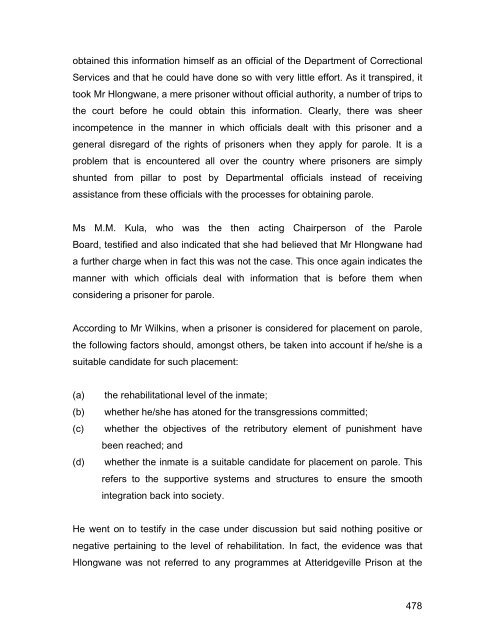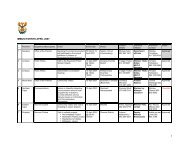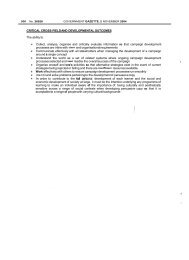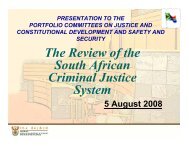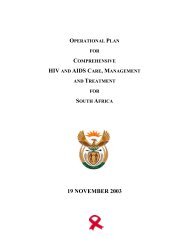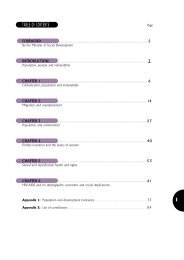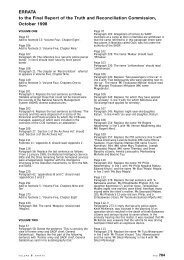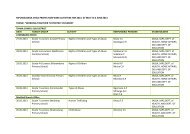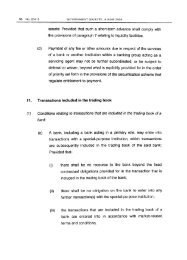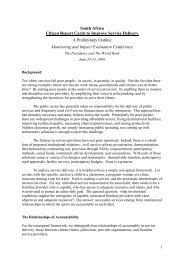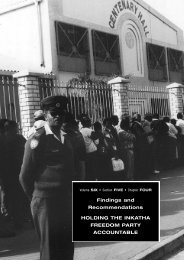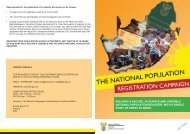Chapter 9 - Parole - South African Government Information
Chapter 9 - Parole - South African Government Information
Chapter 9 - Parole - South African Government Information
Create successful ePaper yourself
Turn your PDF publications into a flip-book with our unique Google optimized e-Paper software.
obtained this information himself as an official of the Department of Correctional<br />
Services and that he could have done so with very little effort. As it transpired, it<br />
took Mr Hlongwane, a mere prisoner without official authority, a number of trips to<br />
the court before he could obtain this information. Clearly, there was sheer<br />
incompetence in the manner in which officials dealt with this prisoner and a<br />
general disregard of the rights of prisoners when they apply for parole. It is a<br />
problem that is encountered all over the country where prisoners are simply<br />
shunted from pillar to post by Departmental officials instead of receiving<br />
assistance from these officials with the processes for obtaining parole.<br />
Ms M.M. Kula, who was the then acting Chairperson of the <strong>Parole</strong><br />
Board, testified and also indicated that she had believed that Mr Hlongwane had<br />
a further charge when in fact this was not the case. This once again indicates the<br />
manner with which officials deal with information that is before them when<br />
considering a prisoner for parole.<br />
According to Mr Wilkins, when a prisoner is considered for placement on parole,<br />
the following factors should, amongst others, be taken into account if he/she is a<br />
suitable candidate for such placement:<br />
(a)<br />
(b)<br />
(c)<br />
(d)<br />
the rehabilitational level of the inmate;<br />
whether he/she has atoned for the transgressions committed;<br />
whether the objectives of the retributory element of punishment have<br />
been reached; and<br />
whether the inmate is a suitable candidate for placement on parole. This<br />
refers to the supportive systems and structures to ensure the smooth<br />
integration back into society.<br />
He went on to testify in the case under discussion but said nothing positive or<br />
negative pertaining to the level of rehabilitation. In fact, the evidence was that<br />
Hlongwane was not referred to any programmes at Atteridgeville Prison at the<br />
478


